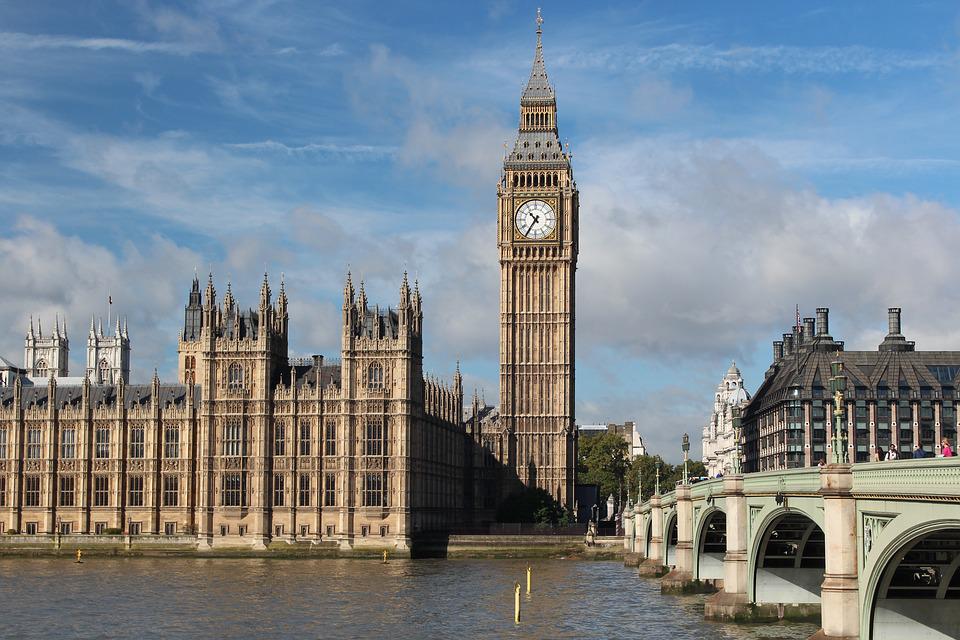Spouse Visa to ILR (Indefinite Leave to Remain)
If you hold a Spouse Visa for certain period of time, you could be eligible for Indefinite Leave to Remain in the UK.
Call us on +44 (0)333 414 9244 for immediate help & assistance with your situation. We’re here to help you in person, via the phone or online.
Read our 1001 reviews
Request a call back from our immigration experts
Benefits of Choosing IAS for Your Residency Application
IAS is the ideal choice for a range of UK residency applications, such as indefinite leave to remain, long residence and permanent settlement.
Our expert, capable lawyers can help address a wide range of issues and concerns, helping to make the process of applying for residency simple and hassle-free.
At IAS, we are committed to offering the highest-quality level of service available in the law sector. When getting in touch with us for help, you will:

Fully understand all the steps you need to take to succeed in your residency application.



Be fully prepped on all Home Office-required documents and evidence you will need to submit.



Receive regular check-ins from your personal immigration lawyer throughout the entire process.



Continue to receive support from your lawyer to address any requests from the Home Office.
Services we Provide
Apply for ILR from Spouse visa in UK
If you are a non-EEA or Swiss national, you can gain the right to remain in the UK by marrying a British Citizen, or a person with settled status in the UK. If you do this, you will be granted a Spouse Visa. Once you are living in the UK with your spouse or partner, you may wish to make your position more permanent. You can achieve this by gaining ILR from a Spouse Visa. ILR, or, Indefinite Leave to Remain, allows you to settle in the UK permanently without being tied down by immigration rules.
The initial grant of leave for a Spouse Visa is two and a half years. When this period has come to a close, you may choose to extend your Spouse Visa for another two and a half years, assuming you meet the current requirements laid out by the Home Office. At the end of the extension period, you will be eligible to apply for Indefinite Leave to Remain. You should consider applying for ILR before your Spouse visa expires.
Our dedicated immigration lawyers can help you with everything you need to know if you want to apply for Indefinite Leave to Remain. Call our team of advisors today on +44 (0)333 414 9244.
Requirements to apply for ILR on a Spouse Visa
The specific requirements for Indefinite Leave to Remain after holding a Spouse visa vary slightly depending on whether you are on a five or ten-year route to being granted ILR. However, overall, the main requirements are very similar.
To be eligible for Indefinite Leave to Remain while holding a Spouse Visa under the five-year route, you must:
- Still be in a genuine and subsisting relationship with your partner;
- Meet the financial requirements;
- Demonstrate that you and your partner have suitable accommodation for your family;
- Have had leave to remain as a partner for 60 months;
- Meet the English and Life in the UK requirements.
Genuine and subsisting relationship requirement for Indefinite Leave to Remain
When applying for a Spouse Visa, you and your partner need to show that you are in a genuine relationship.
After your eligible period spent on a Spouse Visa and now wish to move from Spouse visa to ILR, the Home Office will review your circumstances before granting Indefinite Leave to Remain. This means that you must still reside together with your partner, and you must be able to demonstrate that your relationship is still subsisting.
There are a few ways you can prove a genuine relationship to the Home Office in support of ILR spouse visa, these include:
- Co-habitation
- A long-term relationship- including marriage or civil partnership
- Children- with a shared responsibility of their care
- Shared financial responsibilities
- Future plans in place
Spouse Visa to ILR financial requirement
To obtain leave to remain in the UK on a Spouse Visa, you and your partner must have a combined income of at least £29,000 a year. You can prove you meet the ILR financial requirements in cash savings also.
To meet the minimum income threshold for the Spouse visa to ILR route, you can rely on:
- Income from salaried employment and self-employment;
- Cash savings held for at least six months, depending on your circumstances. Speak to our lawyers for more information.
- Non-employment income, such as income from property rental, investments, shares, and stocks;
- Maternity allowances or other benefits received in the UK.


Absence for ILR Spouse visa applications
Based on UK immigration law, there is no specific number of maximum absences for those applying for Indefinite Leave to Remain from a Spouse Visa.
However, if you are applying to settle in the UK from any other Point-based visa, your absences should not exceed 6 months in any 12 months. Nevertheless, if you have spent the majority of your time abroad, the Home Office may doubt the genuineness of your application, and refuse your case.
To have your circumstances professionally reviewed by an expert UK immigration lawyer, or to receive help with your Indefinite Leave to Remain application, you can get in touch with IAS. One of our immigration solicitors will be happy to help you.
Accommodation requirements for ILR
The adequate accommodation criteria for getting Indefinite Leave to Remain from a Spouse Visa is almost identical to the initial partner visa application.
This means that you and your partner need to show that you have proper accommodation available for you and your family.
Your house must not contravene “public health regulations”, and have enough rooms for all the members of your family.
English language requirements for ILR Spouse visa
To be eligible for Indefinite Leave to Remain as a Spouse visa holder from a Spouse visa, you must be able to prove your knowledge of the English language by taking a secure English language test to at least level B1. You can take any of the following tests:
- Integrated Skill in English test
- Graded examinations in Spoken English
- IELTS Life Skills certificate
- IELTS certificate
These tests can be taken with test providers such as Trinity College, London.
As part of your Spouse visa ILR application, you must provide a test pass certificate with your required documentation.
You may not need to take the test if you are from a majority English speaking country.
Life in the UK test requirement
A further requirement to be granted ILR as a Spouse visa holder is that you pass the Life in the UK test.
The Life in the UK test is a test consisting of questions about British life and customs. With the test candidate being required to score at least 75% to be graded with a UK test pass.
There are some instances where a person may not be required to take the Life in the UK test. These include:
- The person is under the age of 18 years old
- The person is aged 65 years old or over
- They have passed the test before settling in the UK
- They have a long-term physical or mental condition- if you do have a physical or mental condition that may stop you from taking the test, you may need proof from your doctor
If you take the test and pass, you will be issued with a pass certificate which will act as evidence to support your ILR application.
How much does it cost to submit an ILR application?
The standard fee for submitting an ILR application as a Spouse visa holder is £3,029 per applicant. In addition to this, it will cost £50 to sit the Life in the UK test. It is important to note that should your ILR application be rejected or should you fail the Life in the UK test, you will not be refunded for either.
If you require a faster decision to be made on your ILR application, you can opt for a super priority service, which will speed up the application process accordingly. This comes at an additional cost of £1000 per ILR application submitted for consideration.
Can ILR after a Spouse visa lead to British citizenship?
One of the biggest advantages of ILR status is that it acts as the ideal prerequisite to British citizenship. Becoming a British citizen entitles you to live freely from immigration control just like ILR. It also allows you to apply for a British passport. There are many benefits to becoming a British citizen- it can offer great peace of mind to those who wish to reside permanently with their spouse in the UK.
Becoming a British citizen by acquiring British citizenship comes with its own set of eligibility criteria which should be checked carefully.
If you need help understanding if you are eligible to become a British citizen, you can get in touch with our lawyers for expert immigration advice today.


How long is ILR processing?
The standard processing time for an Indefinite Leave to Remain application is around 6 months. Whilst this is a lengthy application process, you can opt for a decision to be made quicker on your behalf using the application priority service- this comes at an additional cost of £500 per application.
The 6-month timescale is just an estimate and the application process can often be quicker if you have put forward a straightforward case to the UKVI.
In slightly more complex cases, the UKVI may need to reach out to you for additional evidence or documentation. If this is the case, you should ensure you present the requested documents in a timely manner to avoid delays. Failure to do so can result in your Indefinite Leave to Remain application being rejected completely.
Documents required to apply for Indefinite Leave to Remain as a Spouse
The supporting documentation must be provided for ILR applications in various ways. Documentation must be submitted for you and any dependents who apply. The documents required include:
- A passport or other valid travel document
- Information outlining and explaining any periods of absence from the UK
- Proof of your English language test at a pass level
- A test evidence pass certificate from the Life in the UK test
- A Biometric Residence Permit (only if you were issued one)
- Accommodation details
- Complete indefinite leave to remain application form for Spouse (Set M)
All of the documents supplied should be original copies and not photocopies. If they aren’t already, your documents will need to be translated into either English or Welsh for inspection by the Home Office.


Will a divorce affect my ILR Spouse visa Application?
If you and your spouse at the time of your Spouse visa application decide to get a divorce, then your permission to stay in the UK on your Spouse visa is likely to be affected.
If divorce proceedings go ahead, you must immediately notify the Home Office of your change in your personal circumstances from when you submitted your Spouse visa application. The same conditions apply to those who are a Spouse as part of a Family visa or a dependent visa.
If you already have 5 years of continuous residence in the UK, you can go ahead and proceed to apply for Indefinite Leave to Remain as you may have planned to, living an independent life. However, if this is not the case, you may need to apply for another visa in place of your previous Spouse visa. Alternatively, if you are classed as a responsible parent for a child you have had with your partner, you can apply for a visa using this circumstance- provided that the child has lived in the UK for a minimum of 7 years and is deemed a British citizen or has settled status.
ILR application rejected
Having your ILR refused can be devastating, but it is important to know that you can act on this.
Should your ILR get refused, you can submit a new ILR application that clearly addresses the grounds for refusal. This gives the Home Office the chance to review your request and reconsider.
There are multiple common grounds for refusal, which include: excessive absences, immigration breaches, failure to disclose debt, criminal convictions, failing the English language test, or, any other adverse behaviour.
You can seek immigration advice from a trained lawyer should your application be refused.
Can I still apply for ILR with a criminal record?
You may still be able to apply for ILR with a criminal record, but you must disclose all spent and unspent criminal convictions on your ILR application.
Failure to disclose these will result in your ILR application being rejected.
For more information on how to correctly disclose these convictions to the Home Office, you should contact a trained immigration lawyer for more advice and guidance.


How can Immigration Advice Service help?
At IAS, we are committed to helping all couples who wish to settle in the UK.
Our expert immigration lawyers can assess your eligibility for ILR, gather and check your supporting documents and help with completing your application form to the highest standard.
Your immigration lawyers will also write a Letter of Representation to accompany your application form. This letter provides the Home Office with information on your case and its merits and will reference relevant UK immigration laws which strengthen your application. We will also make sure you meet all the necessary requirements by preparing you for your ‘Life in the UK’ test and IELTS test. With the IAS, you will give yourself the greatest possible chance of receiving ILR status.
To talk to our team about help from one of our professional immigration lawyers, call us today on +44 (0)333 414 9244.
Table of Contents
Table of Contents will appear here.Legal Disclaimer
The information provided is for general informational purposes only and does not constitute legal advice. While we make every effort to ensure accuracy, the law may change, and the information may not reflect the most current legal developments. No warranty is given regarding the accuracy or completeness of the information, and we do not accept liability in such cases. We recommend consulting with a qualified lawyer at Immigration Advice Service before making any decisions based on the content provided.
Frequently Asked Questions
The Indefinite Leave to Remain after a five-year period is usually granted to those on a Spouse Visa assuming the following:
- Minimum income requirement of £29,000
- No immigration law in the UK or abroad has been broken
- The applicant has passed ‘Life in the UK’ test and the English Language Test
- The applicant can supply Biometric Resident information
Read more about the ILR requirements here. It must be noted that these conditions may change if you currently hold a permit different from the Spouse Visa. For example, Tier 2 General visa holders must meet specific financial conditions.
The Indefinite Leave to Remain after a five-year period is usually granted to those on a Spouse Visa assuming the following:
- Minimum income requirement of £29,000
- No immigration law in the UK or abroad has been broken
- The applicant has passed ‘Life in the UK’ test and the English Language Test
- The applicant can supply Biometric Resident information
Read more about the ILR requirements here. It must be noted that these conditions may change if you currently hold a permit different from the Spouse Visa. For example, Tier 2 General visa holders must meet specific financial conditions.
If you are a non-EEA or Swiss national and you marry a British Citizen, or a person with settled status in the UK, you will be eligible to apply for a Spouse Visa.
It is important to note, however, that the Home Office are very strict with visas for spouses. They are trained to spot cases of marriage fraud or ‘sham marriages’ and a Spouse Visa application requires a great deal of evidence to prove your relationship or marriage is genuine.
Read more about Spouse Visas and other Partner Visas.
After Indefinite Leave to Remain has been granted you will be eligible to apply for British Citizenship by marriage. This process is called British Naturalisation.
Read more about British Citizenship or British Naturalisation.
If you wish to get Indefinite Leave to Remain in the UK, the minimum English proficiency required is B1 CEFR. You can satisfy this requirement by either:
- Passing an accredited English language test
- Being a national of a majority English speaking country
- Holding a UK degree which was taught and researched in English.
You can apply for ILR after the UK Spouse visa if you lived in the UK on a Spouse visa for at least 60 months or five years.
Our expert lawyers can help you with your application for ILR from a Spouse Visa. We will work with you to ensure that your application is completed to the highest standard before it is submitted. Our services include:
- assessing your eligibility for ILR;
- gathering your documentation and looking for issues or gaps;
- addressing any issues with your documentation;
- completing your application to a professional standard;
- having a lawyer prepare a Letter of Representation. This letter accompanies your application and provides details on your case and its merits. It will also reference any relevant UK immigration laws that support your application;
- liaising with the Home Office where appropriate;
- preparing you for your ‘Life in the UK’ test;
- preparing you for your English Language test;
- checking that you have enough evidence to prove your relationship is genuine to the Home Office.
Contact IAS today on +44 (0)333 414 9244 or make an enquiry online to arrange a consultation with a qualified immigration lawyer.


What our clients are saying
How our UK Immigration Lawyers can help
At the Immigration Advice Service our lawyers specialise in a wide range of UK visas, nationality and asylum applications and have represented clients in various successful complex and high-profile cases.















